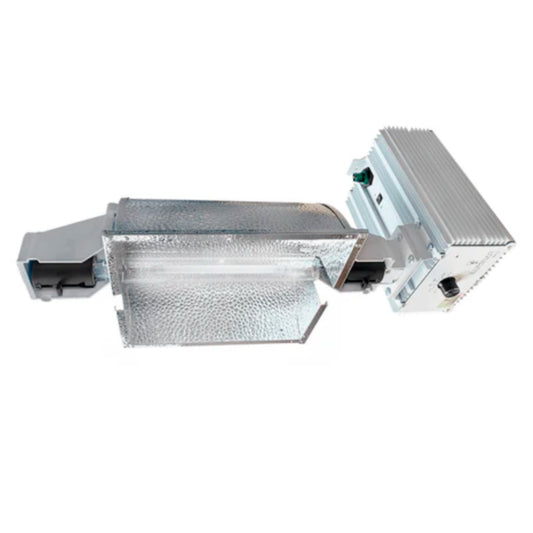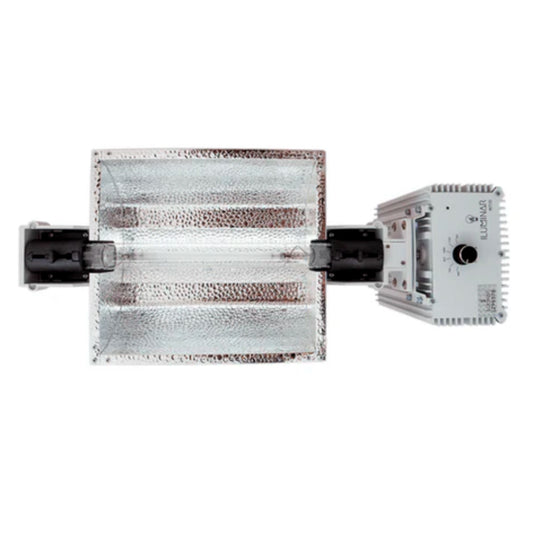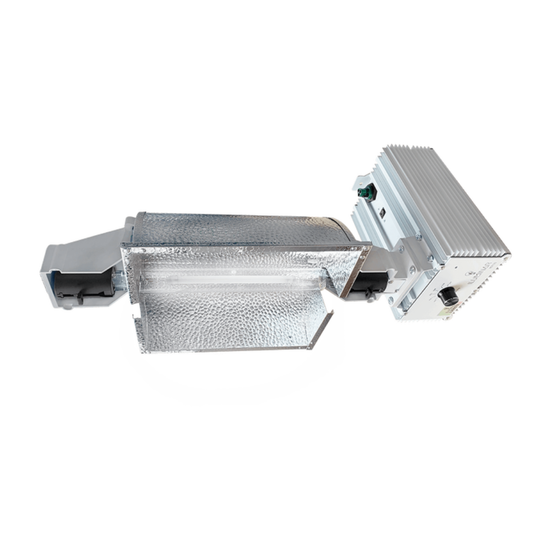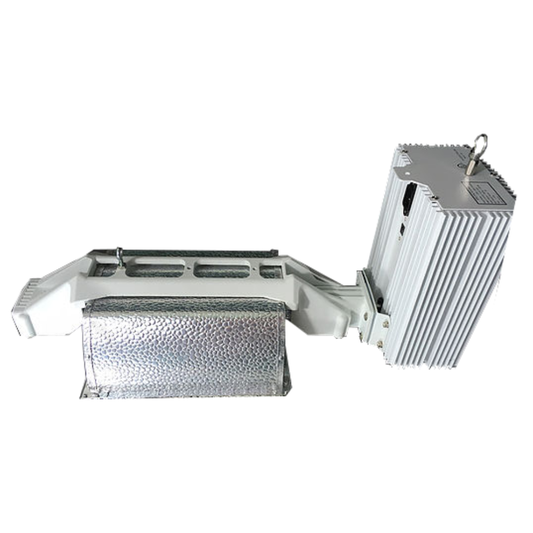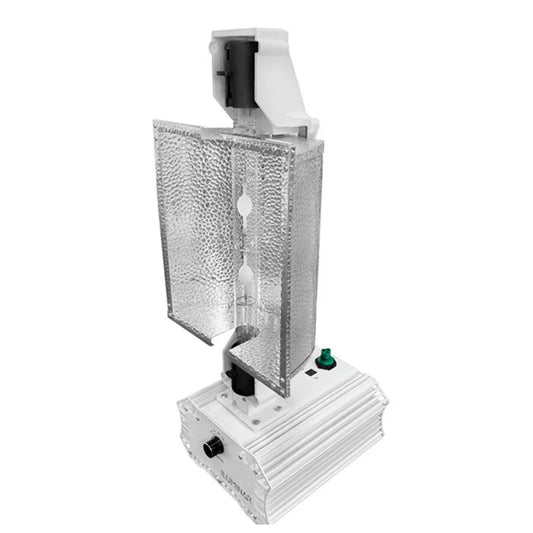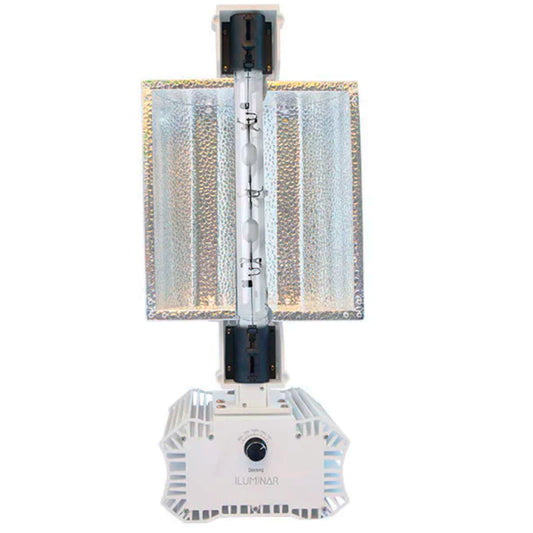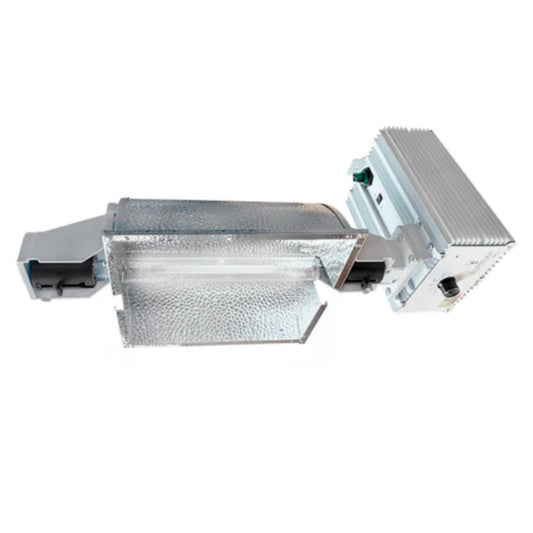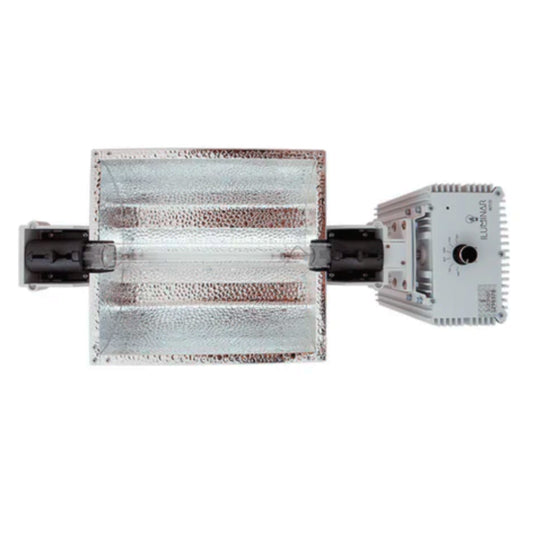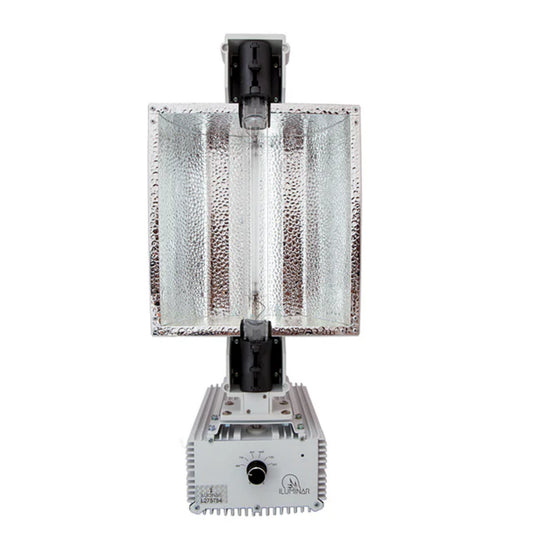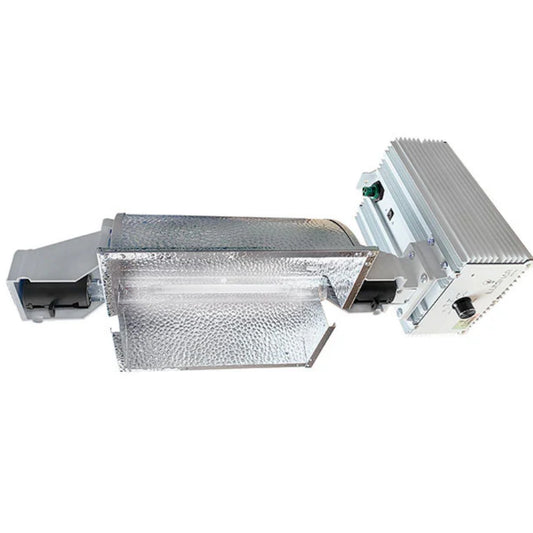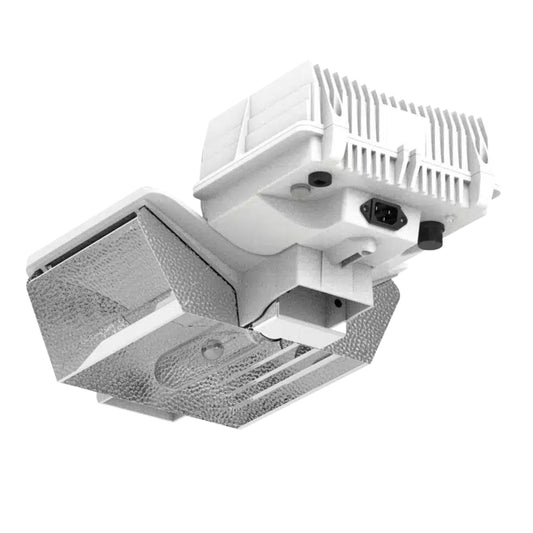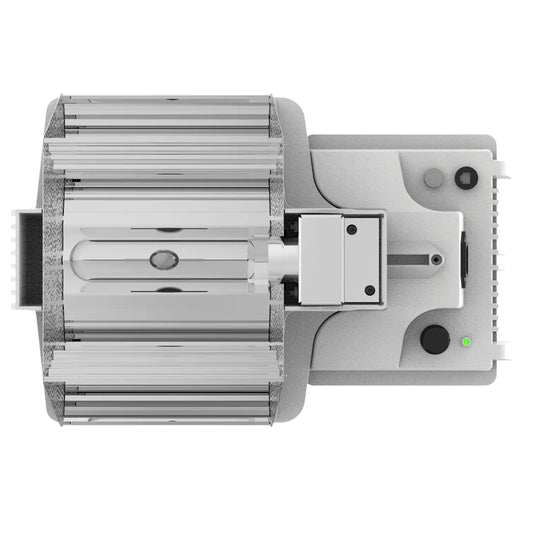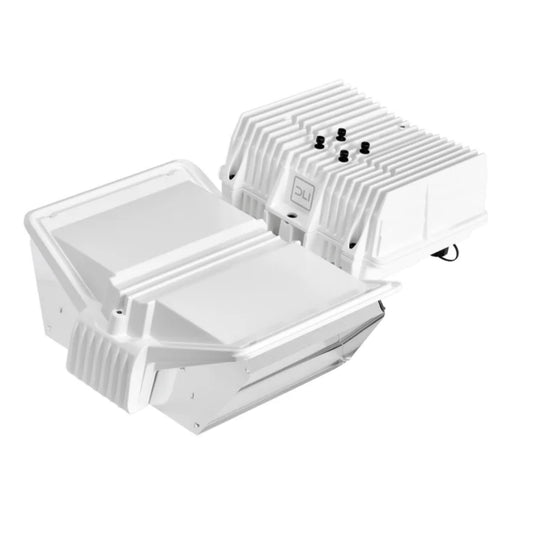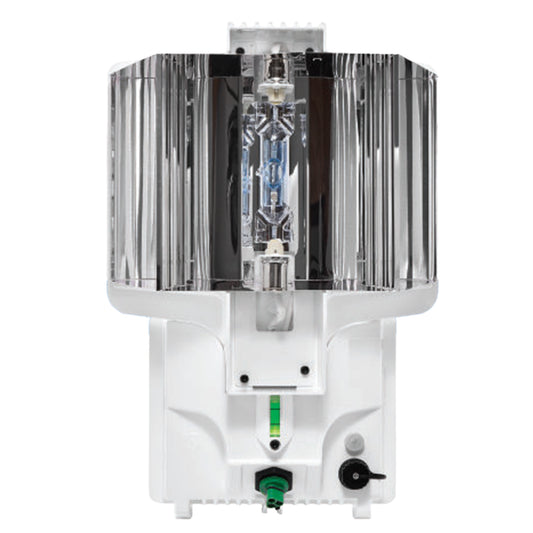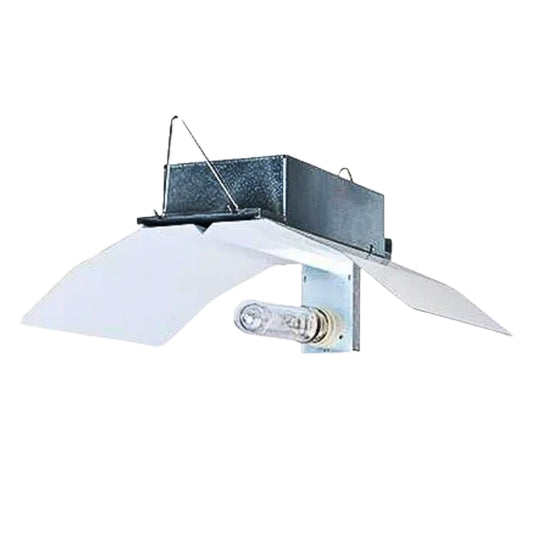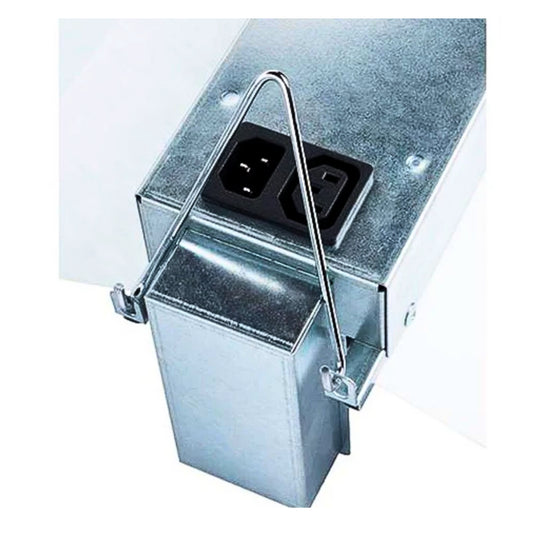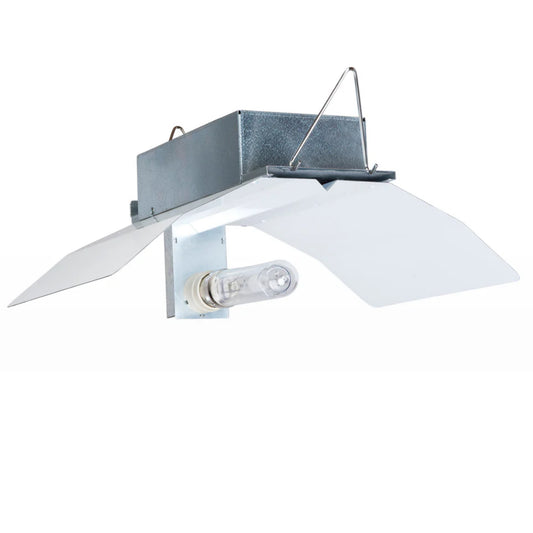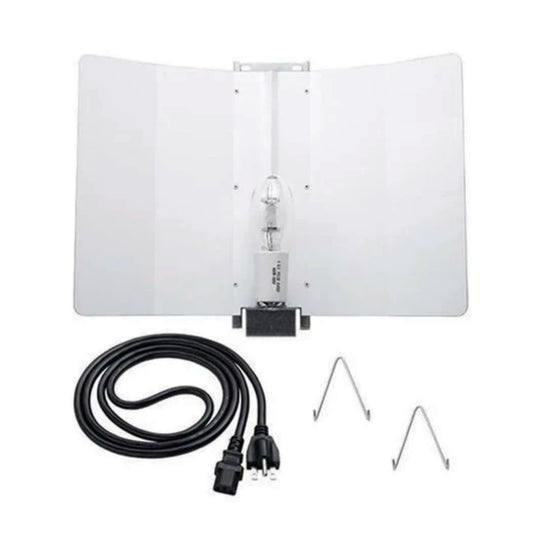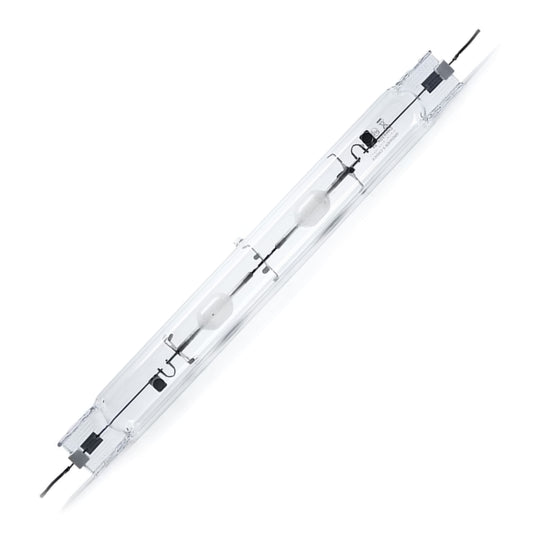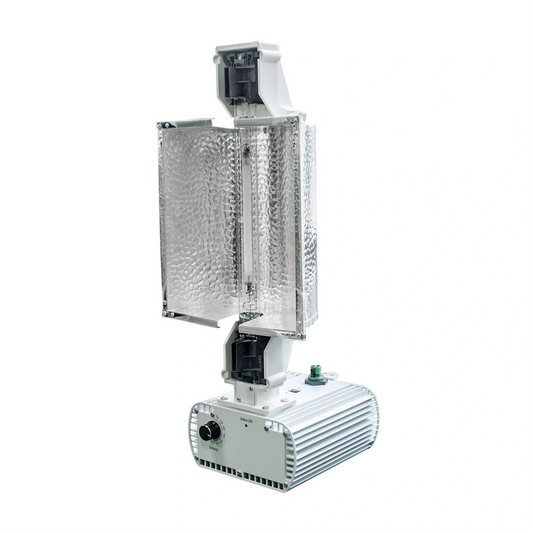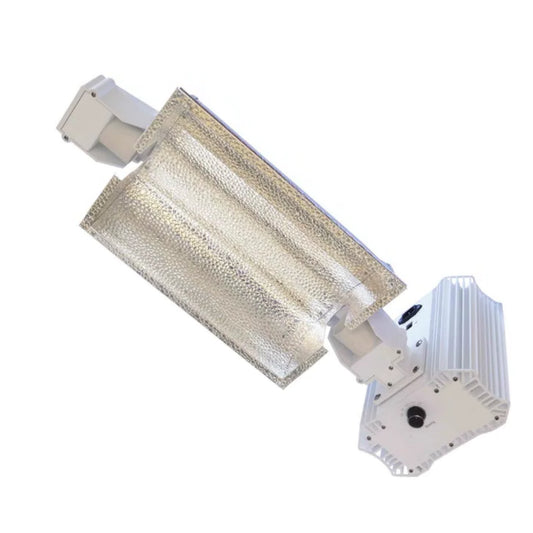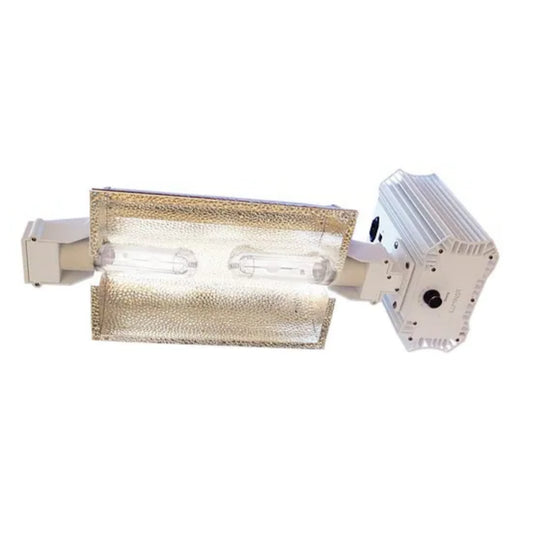Double Ended + CMH Fixtures
Power your indoor farm with Double Ended + CMH fixtures engineered for full-spectrum, high-PPF performance. Ideal for greenhouses and vertical growing, these agricultural grow lights deliver uniform PPFD, energy efficiency, and durable output—supporting healthier plants and higher yields.
-
ILUMINAR 1000w Double Ended Fixture - 120/240v
Vendor:Iluminar LightingRegular price $259.99 USDRegular priceUnit price / per -
ILUMINAR 1000w Double Ended Fixture - 277V C-Series w/ Lamp Included + C-Hanger
Vendor:Iluminar LightingRegular price $265.00 USDRegular priceUnit price / per$265.00 USDSale price $265.00 USD -
iluminar Lighting CMH DE Lamp 630w Fixture
Vendor:Iluminar LightingRegular price $247.00 USDRegular priceUnit price / per$247.00 USDSale price $247.00 USDiluminar Lighting CMH DE Lamp 630w Fixture
Regular price $247.00 USDRegular priceUnit price / per$247.00 USDSale price $247.00 USDiluminar Lighting CMH DE Lamp 630w Fixture
Regular price $247.00 USDRegular priceUnit price / per$247.00 USDSale price $247.00 USD -
ILUMINAR 1000w Double Ended Fixture - 277V C-Series + C-Hanger (No Lamp Included)
Vendor:Iluminar LightingRegular price $210.00 USDRegular priceUnit price / per -
Iluminar IL DE Full Fixture 1000W 120/240V C-Series with included HPS DE Lamp
Vendor:Iluminar LightingRegular price $265.00 USDRegular priceUnit price / per$265.00 USDSale price $265.00 USD -
Dutch Lighting Innovations CRI-Series 315W CMH 120V-347V
Vendor:Dutch Lighting InnovationsRegular price $489.75 USDRegular priceUnit price / perDutch Lighting Innovations CRI-Series 315W CMH 120V-347V
Regular price $489.75 USDRegular priceUnit price / perDutch Lighting Innovations CRI-Series 315W CMH 120V-347V
Regular price $489.75 USDRegular priceUnit price / per -
Dutch Lighting Innovations CRI-Series UV 150W Double Ended Fixture, 208-347V
Vendor:Dutch Lighting InnovationsRegular price $659.00 USDRegular priceUnit price / per -
Endomaxx 315 CMH Horticulture Luminaire System
Vendor:*AAA NO BrandRegular price $561.54 USDRegular priceUnit price / per -
Endomaxx 150 CMH Luminaire System
Vendor:*AAA NO BrandRegular price $361.54 USDRegular priceUnit price / perEndomaxx 150 CMH Luminaire System
Regular price $361.54 USDRegular priceUnit price / perEndomaxx 150 CMH Luminaire System
Regular price $361.54 USDRegular priceUnit price / per -
Growers Choice 630W DE CMH Lamp 3000K Red 3K-R
Vendor:Growers ChoiceRegular price $187.50 USDRegular priceUnit price / per -
MegaPhoton 1000w DE Commercial Fixture with Lamp - 277v
Vendor:MegaPhotonRegular price $199.00 USDRegular priceUnit price / per -
MegaPhoton 1000 Watt DE Commercial Fixture with Lamp - 277v - 347v
Vendor:MegaPhotonRegular price $199.82 USDRegular priceUnit price / per -
iluminar Lighting CMH Dual Lamp 630w | Grow Light Fixture
Vendor:Iluminar LightingRegular price $407.70 USDRegular priceUnit price / per
Double Ended + CMH Fixtures
Power your indoor operation with high-output Double Ended (DE) fixtures and Ceramic Metal Halide (CMH) fixtures engineered for greenhouses, indoor farms, and vertical systems. These professional-grade luminaires deliver a balanced, full-spectrum output with high PAR/PPF, uniform distribution, and dependable efficiency—supporting vigorous vegetative growth, dense flowering, and consistent quality across every harvest....
Why Choose DE & CMH Lighting?
Upgrading to dedicated agricultural fixtures improves spectral quality, canopy penetration, and lumen/PAR maintenance over time—meaning tighter internodes, healthier root systems, richer coloration, and more uniform yields. With optimized reflector geometry and robust ballasts, DE and CMH systems maintain output longer, reduce change-out frequency, and help you hit target PPFD with fewer hotspots and less waste heat.
Key Benefits
• High photosynthetic efficiency (strong PPF per watt)
• Full-spectrum output for robust growth and quality
• Excellent canopy penetration and uniformity
• Long-lasting lamps with stable PAR maintenance
• Options for open/enclosed reflectors and multiple voltages
Best Uses & Applications
• Greenhouse supplemental light: Fill DLI reliably in shoulder seasons and overcast stretches.
• Indoor single- and multi-tier: Drive vegetative growth and heavy flowering with predictable uniformity.
• Vertical growing: Compact footprints and controllable output for racking and tight environments.
• Propagation to finish: Pair 315W CMH for early growth and 630W/1000W for aggressive canopy development.
Types of Fixtures
Double Ended (DE) HPS / Hybrid DE
High-intensity 750–1000W systems with strong penetration and excellent maintenance; ideal for large, high-ceiling rooms and greenhouse bays.
CMH 315W & 630W
Full-spectrum, high-CRI output that supports compact structure and high-quality production; great for veg rooms, mixed-light greenhouses, and premium flower finish.
Open vs. Enclosed Reflectors
Open reflectors favor broader distribution and cooling; enclosed hoods enhance directionality and containment in sensitive environments.
Ballasts, Dimming & Voltage Options
Selectable power (e.g., 50–115%), soft-start, and 120–240V / 277V compatibility streamline integration with existing electrical infrastructure and control systems.
Featured Brands in Double Ended + CMH Fixtures
Explore trusted manufacturers known for reliability, spectrum, and service:
• Dutch Lighting Innovations
• Endomaxx
• Growers Choice
• Iluminar Lighting
Frequently Asked Questions
What is a CMH grow light?
CMH (Ceramic Metal Halide) uses a ceramic arc tube and specific salts to produce a balanced, sun-like spectrum with strong blue/green content and ample red. The result is compact structure, healthy vegetative growth, and high-quality flowers and fruit with natural coloration.
How much does CMH vs HPS yield?
Yield depends on environment, canopy density, genetics, and PPFD/DLI. Historically, 1000W DE HPS can push very high flower mass per fixture in large rooms, while CMH often delivers excellent quality and competitive yields at lower wattages (315W/630W). Many facilities use CMH for veg/early flower and HPS or higher-output systems for finishing.
Is CMH better than LED?
Modern LEDs often offer higher system efficacy, lower heat load, and granular spectrum control. CMH excels for cost of entry, pleasing spectrum, and proven results. Choice depends on your capex/opex targets, ceiling height, cooling capacity, and desired photomorphogenic effects.
Is CMH better than HPS?
CMH typically provides a fuller spectrum and improved morphology, while HPS (especially DE 1000W) is renowned for intense flowering output and canopy penetration. Many growers combine them (or stage them by growth phase) to balance quality, density, and throughput.
What is the difference between single ended and double ended bulbs?
Double-ended lamps connect at both ends, operate at higher intensity, and generally maintain PAR output better over time. They require DE-specific fixtures. Single-ended lamps screw into a socket, are common in legacy setups, and typically have lower peak intensity and different reflector options.
What are types of light fixtures?
Common categories include DE HPS, CMH (315W/630W), hybrid fixtures, open/enclosed reflectors, remote-ballast units, and all-in-one integrated fixtures. Selection should match your room height, target PPFD, heat management, and control strategy.

